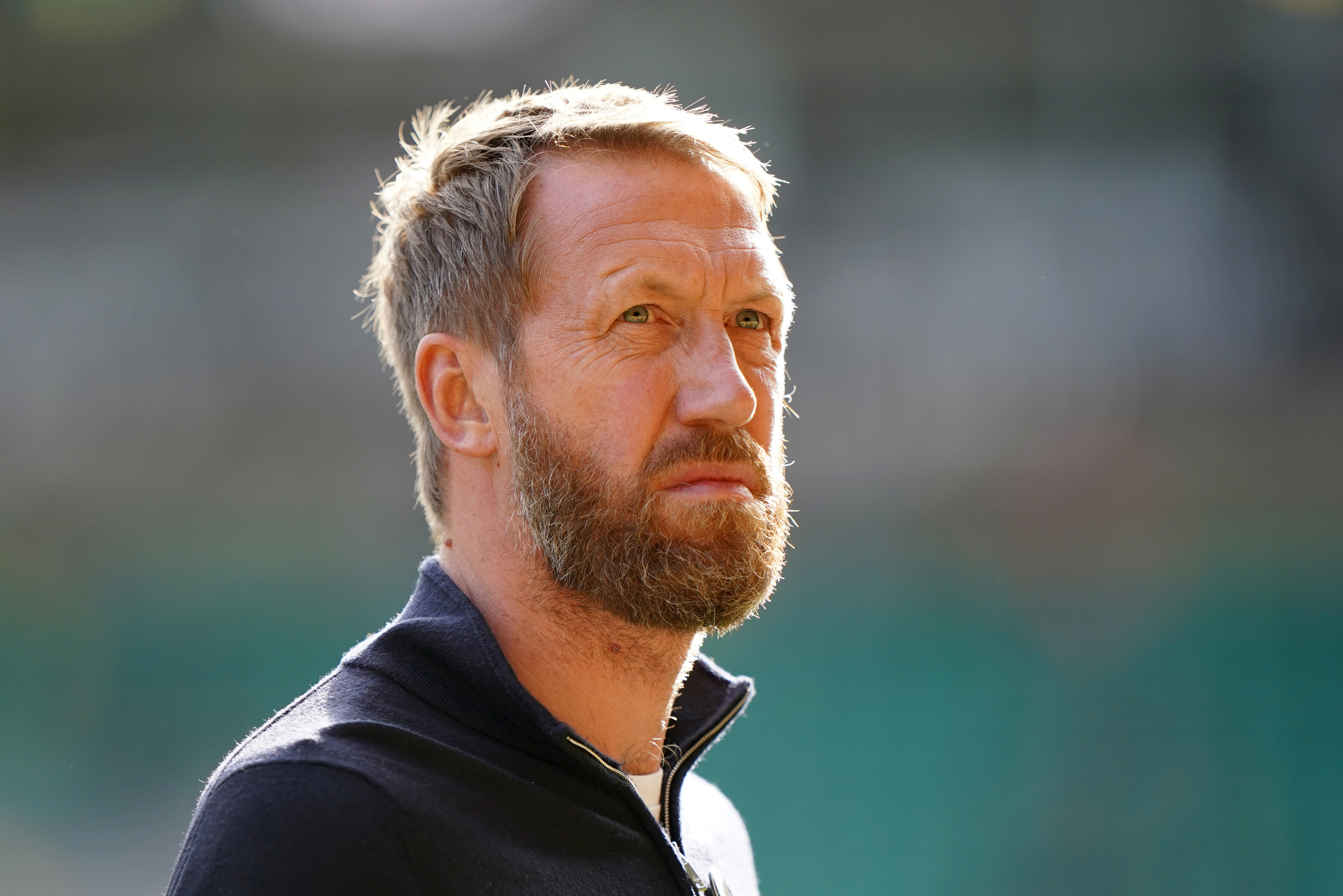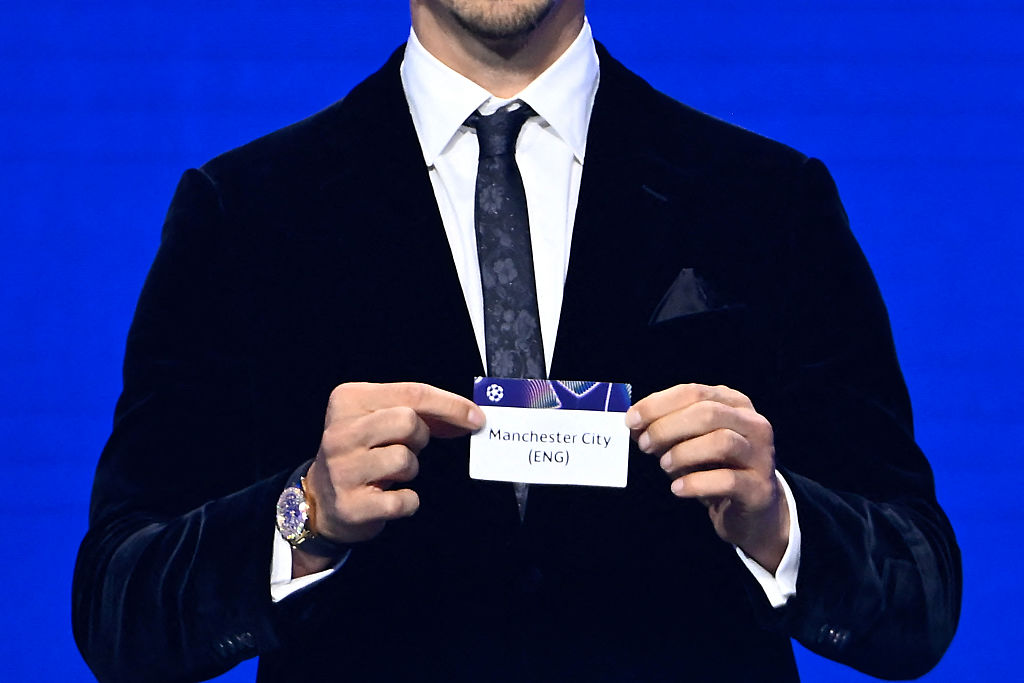Graham Potter: From non-league to Champions League, via Swedish fourth division

The best features, fun and footballing quizzes, straight to your inbox every week.
You are now subscribed
Your newsletter sign-up was successful
Want to add more newsletters?

Five times a week
FourFourTwo Daily
Fantastic football content straight to your inbox! From the latest transfer news, quizzes, videos, features and interviews with the biggest names in the game, plus lots more.

Once a week
...And it’s LIVE!
Sign up to our FREE live football newsletter, tracking all of the biggest games available to watch on the device of your choice. Never miss a kick-off!
Join the club
Get full access to premium articles, exclusive features and a growing list of member rewards.
Only five years ago any media wishing to hear Graham Potter wax lyrical about his improbable rise from the ninth tier of English football to the Europa League group stages could simply call the mobile number that was published on his club’s official website.
Potter was in the midst of working miracles in sub-arctic Sweden with Ostersund, whom he lifted from the fourth to first tier then into battle with some of the giants of the European game.
As his side reached the last 32, where they secured a famous 2-1 second-leg win at Arsenal, the former York defender was only too happy to make himself accessible to an increasingly intrigued world’s press.

Potter told of starting his coaching journey with Leeds Carnegie in the Northern Counties East League in 2008, and how Ostersund’s triple promotion had been inspired by a larger than life chairman, Daniel Kindberg, who viewed cultural enrichment as an integral part of the training programme.
Under Kindberg’s control, the players were made to train and perform a dance routine to ‘Swan Lake’, some became published authors and it was not uncommon to end a session with a workshop on the indigenous Sami people of the Swedish Arctic.
“I didn’t feel like the typical pathway was enough for me,” Potter told the PA news agency in 2017. “That’s the beauty of football. You never know where things are going to end up.”
As he swans into Stamford Bridge this week, he can reflect on a playing career that peaked with 10 Premier League appearances for Southampton, including in the famous 6-3 win over Manchester United at The Dell in 1996.
The best features, fun and footballing quizzes, straight to your inbox every week.

Potter’s playing career petered out at the age of 30 and he completed his Masters, moving into the education sector and linking up with Carnegie, the team representing Leeds university with whom he took his coaching badges.
An unlikely recommendation from Graham Jones, then assistant to Swansea boss Roberto Martinez, saw Potter accept the Ostersund challenge in 2011, jetting just outside the Arctic Circle where temperatures routinely plummeted below minus 35 degrees in winter.
He took with him a rag-bag collection of apparent has-beens and never-weres, including Jamie Hopcutt, who had been released by York as a teenager and suddenly found himself fielding a phone call every bit as unlikely as the one that led Potter to pack his bags.
“I was being sent out on loan to places like Whitby when I got an e-mail inviting me to a trial day at Warwick University,” recalled Hopcutt. “I scored a hat-trick and got a call from Graham, and he invited me over to Sweden to see how I liked it.”

Peculiar as Potter’s trajectory – never mind his transfer policy – may have appeared, it proved a marriage made in heaven as he lifted his unfashionable side into Sweden’s top tier, Allsvenskan, in his first five years in charge.
They won the Swedish Cup, which in turn earned them a shot at the Europa League, where they proceeded to beat both Galatasaray and PAOK, earning a place in the group stage where Potter would, initially at least, be the only British manager.
Advancing behind Athletic Bilbao having lost only one game, Potter led his side into a last-32 clash with the Gunners and inspired a 2-1 win in the second leg, despite falling to a 4-2 aggregate defeat.
“At 2-0 we thought we had a chance,” admitted Potter, by now well versed in the footballing improbable. “We played well, won the game, but it was just short of the miracle.”

Inevitably Potter’s achievement attracted attention, and in 2018 he was appointed manager of newly-relegated Championship side Swansea. He proved equally at home in the south Wales sun as he had in the Arctic Circle – and his unlikely odyssey was only just beginning.
He joined Brighton in 2019 and led the Seagulls to their record points total in the Premier League during that Covid-hit season. Brighton matched that total again the following campaign, before they recorded their first top-half finish with last year’s ninth place.
Potter’s continued success made him Chelsea’s number one target following the dismissal of Thomas Tuchel.
It is to be assumed Blues officials did not have to trawl the internet for his mobile number. But Potter’s message has always resolutely remained the same.
 Join The Club
Join The Club










